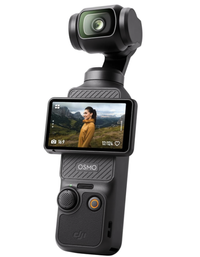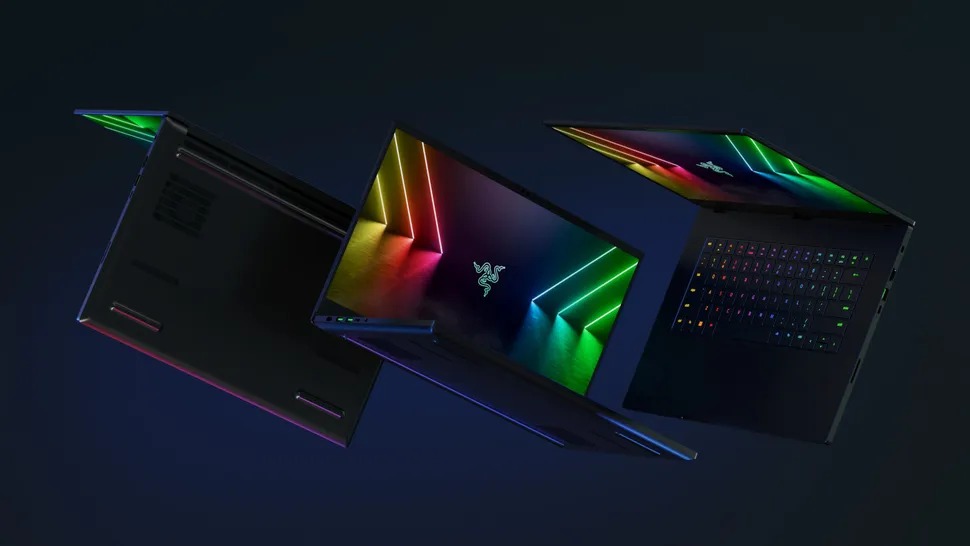DJI Osmo Pocket 3 vs. iPhone — 5 reasons this gimbal camera wins
There are things the iPhone just can't do
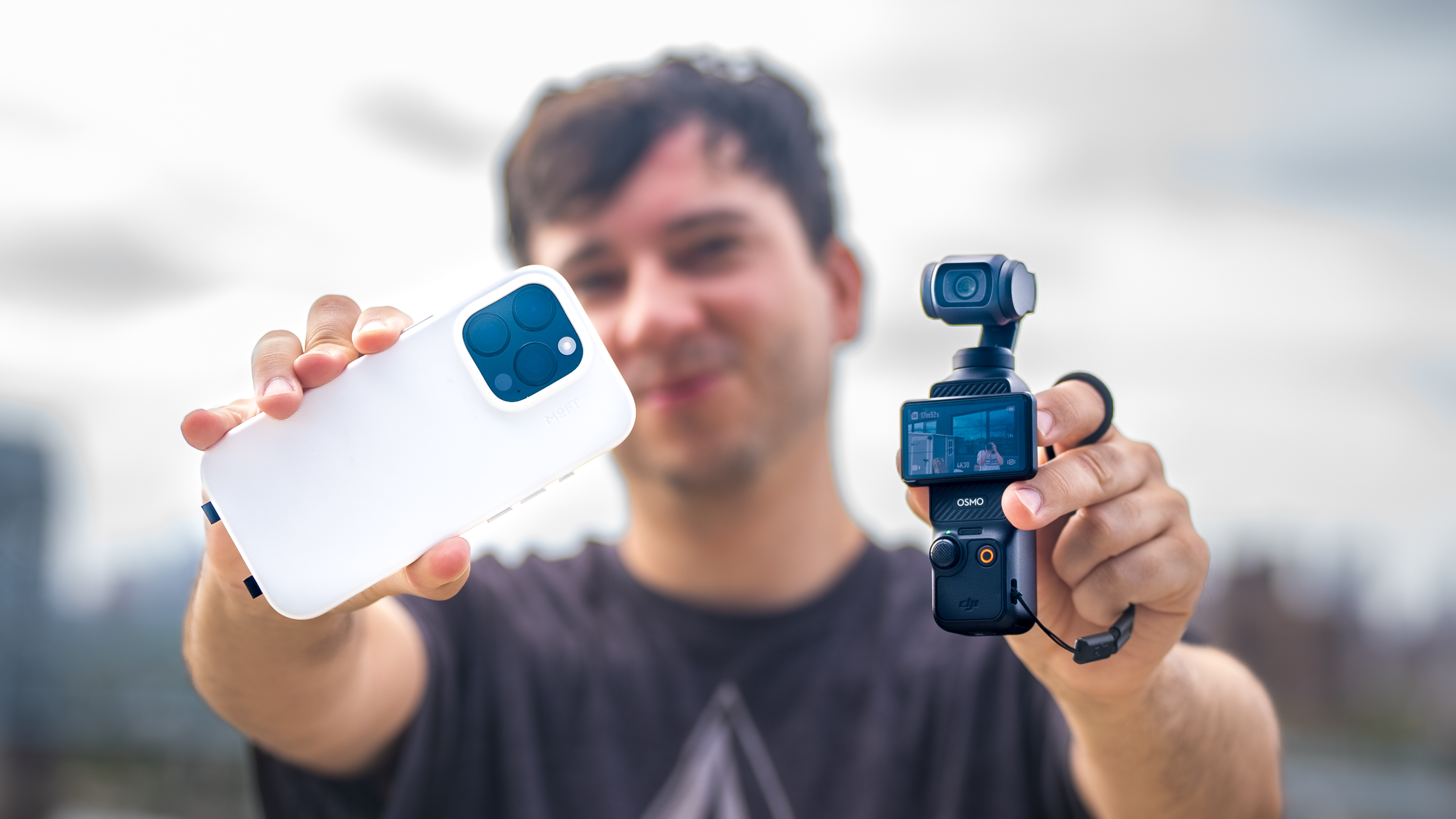
I’ve been using the DJI Osmo Pocket 3 for about six months, and this tiny camera has been the biggest surprise of the year for me. Every time I go on a trip, work on more adventurous projects, or just want to capture crisp video without breaking my back with bulky gear, the Osmo Pocket 3 is part of my setup.
The DJI Osmo Pocket 3's video quality — particularly its dynamic range — is incredible, it has super smooth stabilization, and it’s one of the best subject-tracking systems I’ve tried. And to get all of that in something this size should have every other camera brand worried.
I’m surprised we don’t have more competitors to Pocket 3 yet, because I really think the future of big camera setups is going in this direction. Speaking of which, one of my first videos on the Pocket was how I replaced my $3,000 Sony a7S III and DJI Ronin gimbal combo with this little guy.
That got me thinking, “how does it stack up to the camera that I already always have on me?," — my iPhone 15 Pro. I’ve shot a lot of video with my iPhone and sometimes, it’s all I need, but if you’re ready to step up your video production and want a camera that’s nearly as small and easy to use, here are five reasons I still reach for the Osmo Pocket 3 every time.
Built-in gimbal for super smooth footage
Arguably the biggest selling feature for the Osmo Pocket 3 is the built-in gimbal. While the iPhone 15 Pro, and now iPhone 16 Pro, have impressive software stabilization, it just can’t compete with the physical 3-axis gimbal on the Osmo Pocket 3. Whether you’re walking, running, or filming out of a car window, your footage stays rock solid.
As long as I remember, iPhones have been some of the best phones in terms of video stabilization, but its electronic and software magic can only do so much. Results are impressive with slower movements and at times can even be way better than it has any right to when running with its Ultra-Wide camera set to Action Mode. But aside from topping out at 2.8K 60fps, video quality also quickly fall apart in low light. Even under ideal conditions you’ll still run into weird jerkiness or warpiness from the system trying to keep up.
In comparison, because the Pocket 3 has an actual gimbal, you could get incredible shots in the darkest of scenes.
Sign up to get the BEST of Tom's Guide direct to your inbox.
Get instant access to breaking news, the hottest reviews, great deals and helpful tips.
DJI Osmo Pocket 3 $519 @ Amazon
The Pocket 3 features a 1-inch CMOS sensor and records up to 4K 120fps.
Cinematic programable movements
The gimbal isn’t just great for hiding bumps in movement — it’s also the perfect tool to add more cinematic pans and tilts. Sure, you can try to mimic the movements handheld, but unless you’re extra steady and slow, there’s a good chance you catch some unwanted shake in your shot. Not to mention, just as when you’re walking or running, the digitial stabilization really struggles in low light.
With the Osmo Pocket 3, you can manually control or program the gimbal movements in seconds to really elevate your production quality. Taking this even further, you can get really creative here with timelapses or repeatable camera movements that barely take any effort.
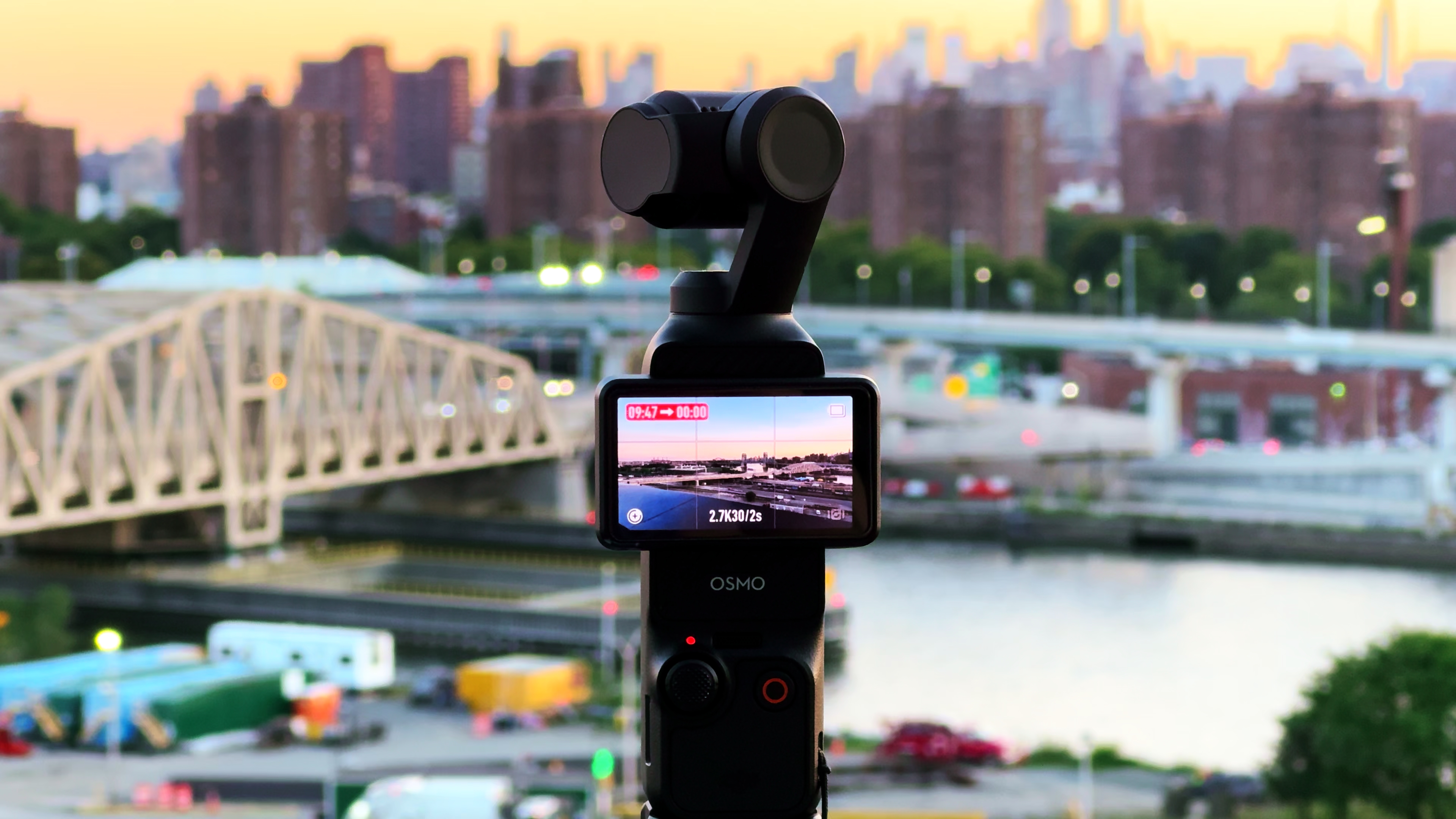
Perfect vlogging tool with a quick camera flip
If you want a camera for vlogging, the Osmo Pocket 3 might just be the perfect camera. I’m someone who hates to film in public, but the Pocket 3 makes things a lot easier.
It’s small and discrete so it doesn’t really draw much attention to yourself. That also means you can bring it into venues or other places where “traditional” camera setups wouldn’t be allowed.
I also love how with just three taps, the camera flips to face you, say what you want to say and then three more clicks and its back to filming what’s in front of you.
Combine that with its bright 2-inch screen makes framing your shot a breeze, and excellent built in mic, (or support for two wireless DJI Mic 2s,) the Osmo Pocket 3 just feels more ready to capture fast, impromptu, and personal moments a lot easier.
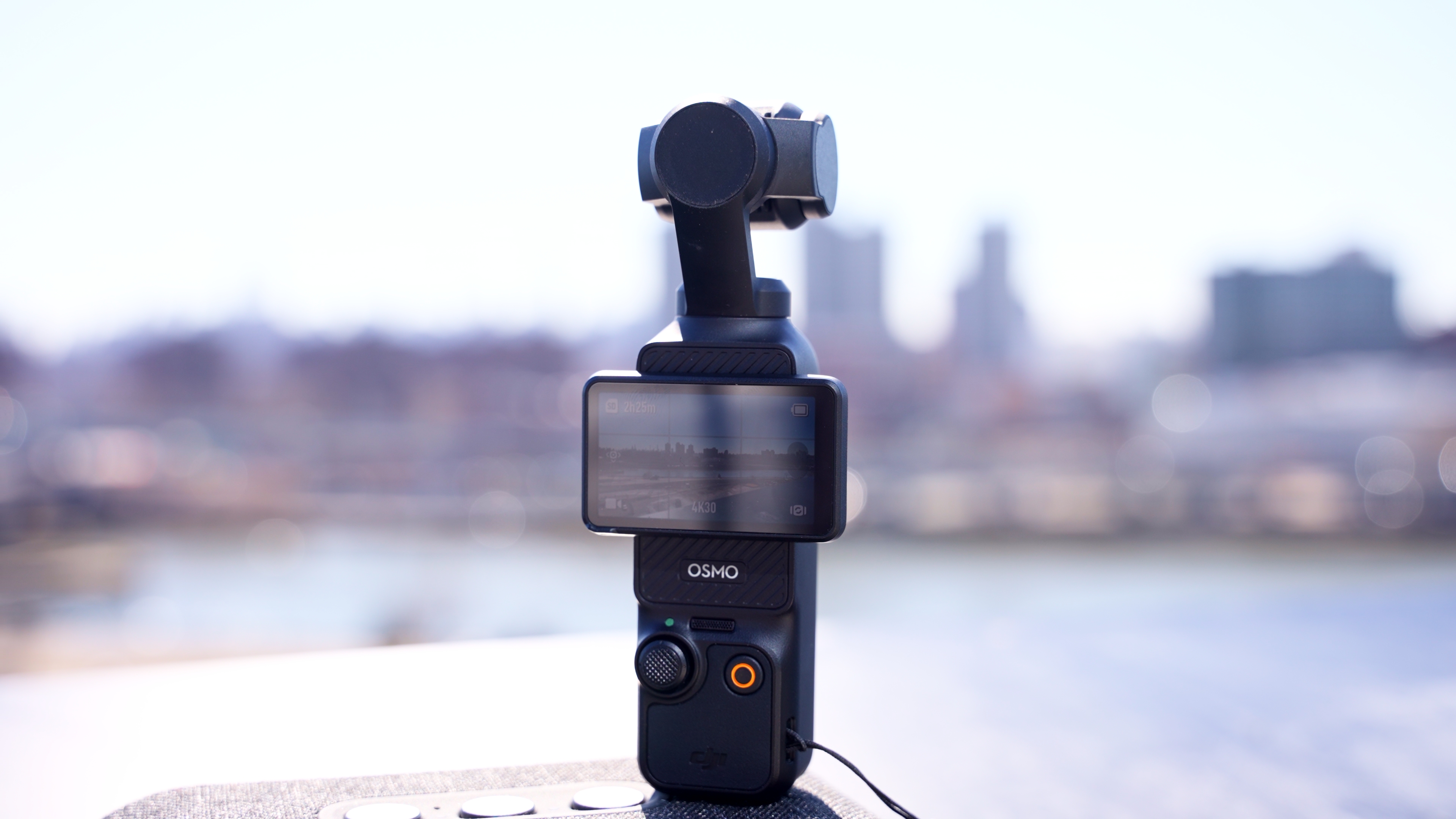
Beautiful depth of field
One of the other things that helps make the Osmo Pocket 3 really shine compared to iPhone videography is its depth of field. You get this beautiful, cinematic bokeh that blurs out the background nicely, giving you decent subject separation that’s usually reserved for larger, more expensive cameras.

No this isn’t going to give you that f/1.2 look of a 50mm prime lens on a full frame, but it really helps give your footage that extra polished pro look that other small cameras can’t really match. Phones are getting better at this, especially with their portrait or cinematic modes, but those software tricks can be hit or miss and can often look fake especially with messier hair or more complex subjects. Even when I’m not filming myself, if I want to show of a cool new gadget I’m reviewing, the Pocket 3 helps me get all those beauty shots without needing to pack my big setup.
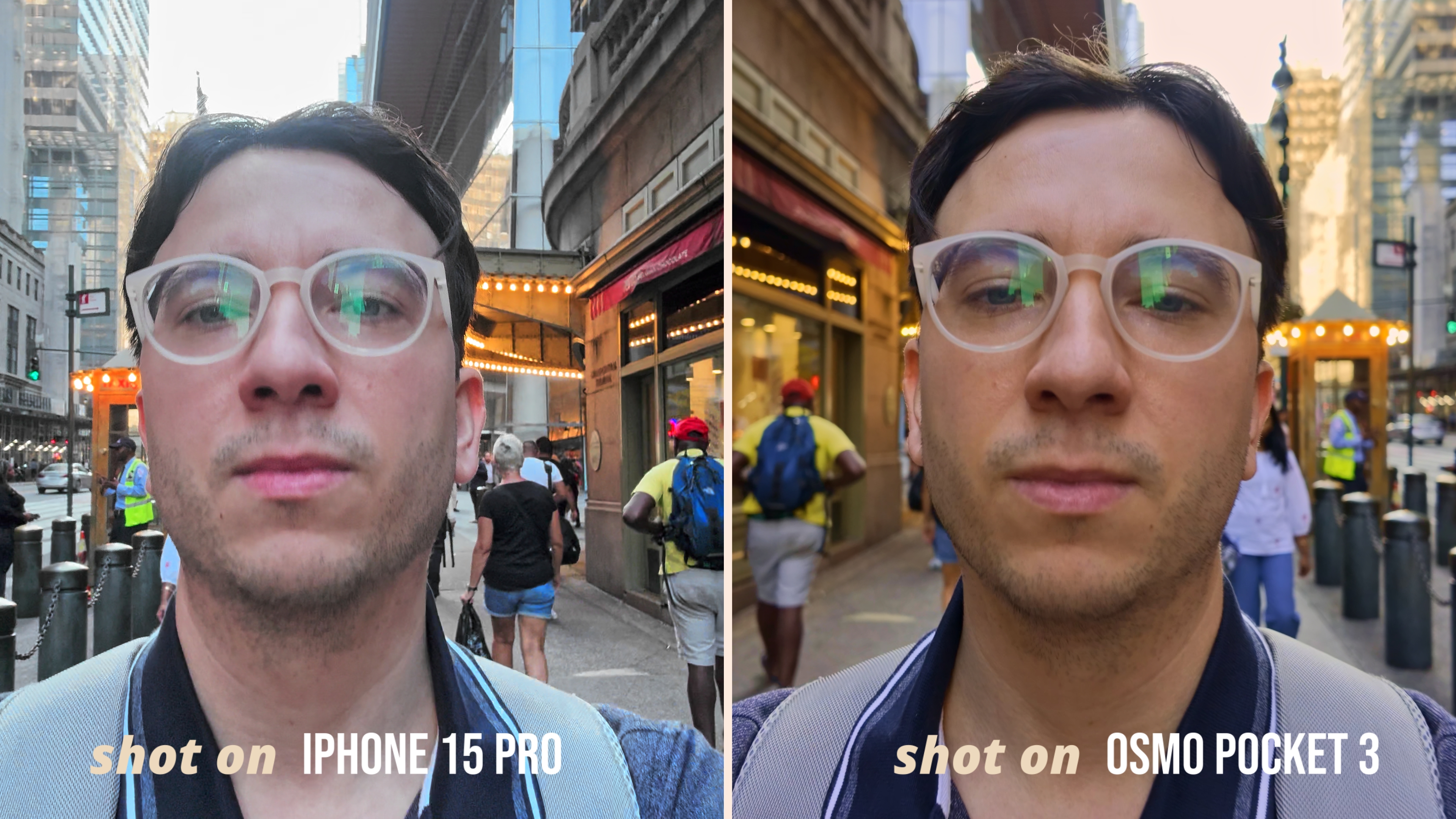
Long battery life and removable storage
When you’re out capturing content, the last thing you want is to worry about your device running out of juice or filling up its storage. The Osmo Pocket 3 has you covered with an impressive battery life of up to 166 minutes of 4k recording on a single charge. If that’s not enough, picking up the battery grip accessory — which I highly recommend — extends your recording time up to 253 minutes or over four hours of continuous filming.
I often go the whole day without worrying about battery levels. Unlike your phone, which is your lifeline for everything else, the Osmo Pocket 3 is a dedicated tool. That means no stress about draining your phone’s battery while you’re filming.
Similarly, I hate running out of space on my Phone. The Pocket 3 has built-in 64GB of memory and supports microSD cards up to 1TB. I really wish phones would bring this back, but I think we’re way past that now.
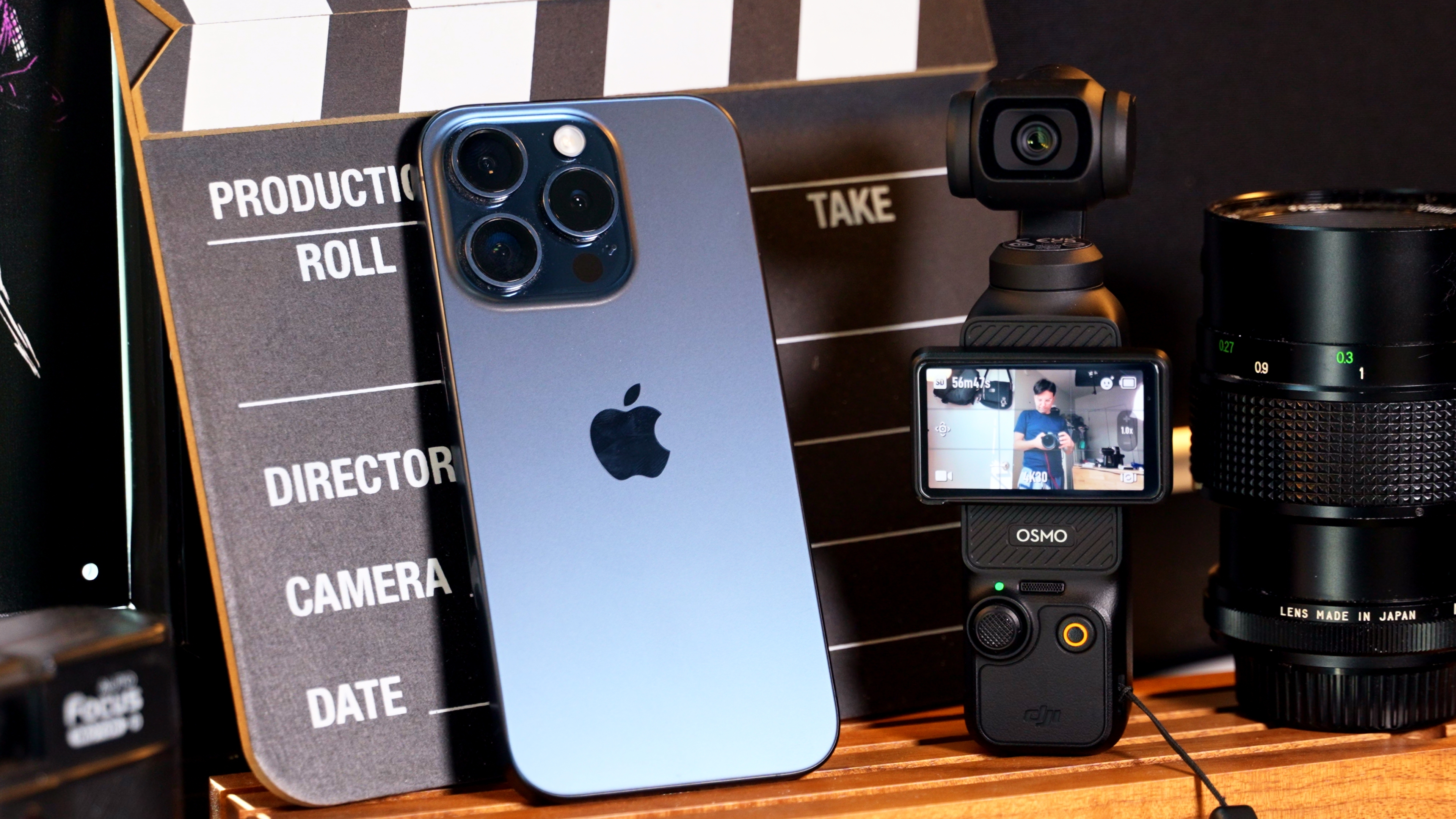
Osmo Pocket 3 vs. iPhone
The iPhone or any phone isn’t a bad video camera, but if you want to take your content creation to the next level with minimal effort and investment, I think the Osmo Pocket 3 is the way to go. Phones are continuing to get more impressive each year, but as much as Apple and every other brand tries getting better and better, mostly with software, there’s only so much they can do with the camera sensors that fit into small phones. The Osmo Pocket 3 is effectively bridging that gap between “Pro” and “casual” filmmaking in a way thats accessible and fun for everyone while also being super portable and relatively affordable.

Paul Antill is a Video Producer and Content Creator at Tom's Guide, specializing in video/audio recording, smart home technology, and laptops. His passion lies in making tech coverage not just informative but also fun and accessible to everyone answering the question “Why does this new product or feature matter to me?” Paul has been a tech host and video producer since 2019 where he has also covered major tech and gaming events. His love for tech and video began on his YouTube channel where for the low price of one subscription he shares head-to-head comparisons and clever ways to make the most of your gear. You can also see the behind-the-scenes and the magic that goes into our Tom’s Guide videos over on his Instagram. Paul graduated from the Mason School of Business at William & Mary, Williamsburg, VA, with a degree in Marketing and Business Analytics. When he's not on camera, you’ll probably still spot him behind one doing street photography and videography. Back home he’s probably in a heated Overwatch 2 match with his friends.
-
xitofat163 ReplyThe Pocket 3 has built-in 64GB of memory and supports microSD cards up to 1TB.
The Pocket 3 does not have 64Gb of memory for users to use.

